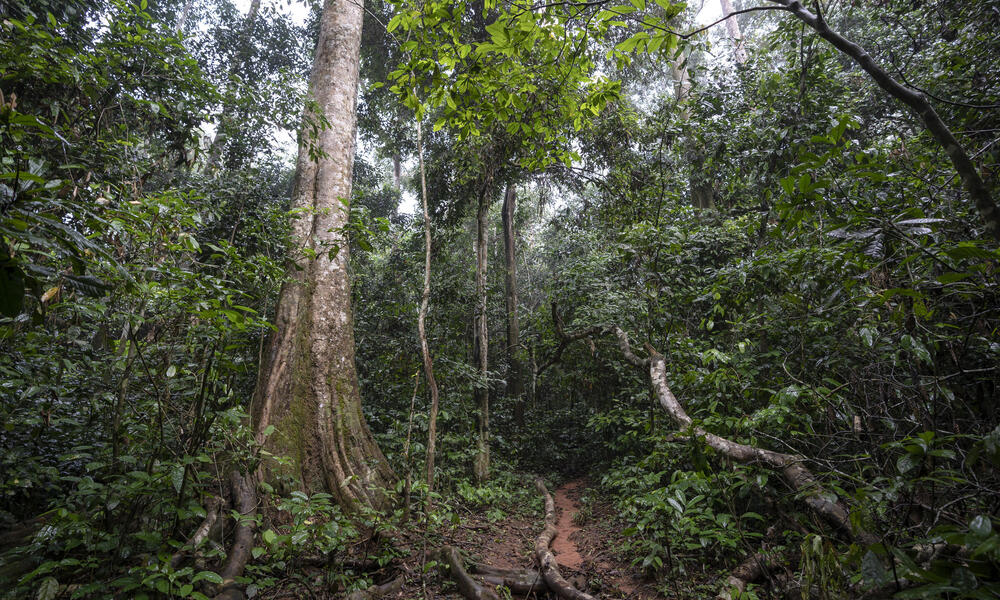More than two decades ago, WWF launched Dzanga-Sangha’s gorilla habituation program with the help of primatologist Chloé Cipolletta. Tourists arrived soon after. The park hired local Ba’Aka, who already accompanied park rangers on poaching patrols, to track and monitor the daily whereabouts of the habituated gorilla groups.
“I quickly realized that their forest knowledge was not only essential to the survival of tourism, but equally as critical to the survival of their culture,” says Allard Blom, WWF-US’s Managing Director for the Congo Basin, who spearheaded the gorilla program. At the time, Ba’Aka had recently completed swift transformation from a society of hunter-gatherers to sedentary agriculturalists. The younger generation was losing the traditional ability to track wildlife. “At the time, there was no economic incentive to do it any longer,” explains Blom.
The gorilla habitation program provided the Ba’Aka living near the park with a new opportunity. By 2020, Dzanga-Sangha employed more than 50 Ba’Aka as gorilla trackers. Today, WWF is working to sustain benefits to the community despite the global travel shutdown caused by COVID-19.
“They are really, really respected back in their villages,” says Terrence Fou, who runs the gorilla habituation program. “Everyone wants to work in the program.”
With his monthly salary Ossolo says he’s been able to build a house, provide food and clothes and healthcare for his wife and four children, and extend that support to a much wider family circle. The park also covers his children’s school tuition. “I always remind everyone in my family, when I come home with my salary, that this money is thanks to the work that I’m doing. And also, because I’m doing the work very well.”
